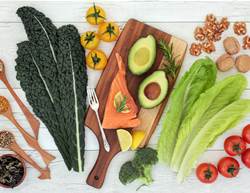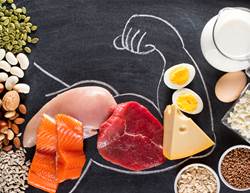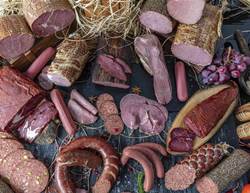Crohn’s disease is a chronic inflammatory condition that affects the digestive tract, often linked to symptoms like abdominal pain, diarrhoea, and fatigue. For many, living with the condition can feel like navigating a dietary minefield — one wrong bite, and your gut may revolt. The good news is there are foods to eat for Crohn’s disease that are less likely to trigger flare-ups and can support digestion.
As dietitian Lauren Manaker explains, “there’s no one-size-fits-all diet for Crohn’s, but there are nourishing, gut-friendly foods that tend to be better tolerated and can take some stress out of mealtimes.”
Board-certified gastroenterologist Dr David Clarke adds: “The inflammation brought on by Crohn’s affects how different foods are processed and tolerated. For this reason, there are certain foods that people with Crohn’s disease might benefit by avoiding — and others that may help ease symptoms.”
Whether you’re managing a flare or in a period of remission, focusing on these options can make eating less overwhelming. Always remember: everyone’s experience is unique, so work with your healthcare team to find the right fit.
Bananas
Bananas are a staple for many people living with Crohn’s. “Bananas are gentle on the digestive tract, low in insoluble fibre and therefore easy to digest,” Dr Clarke explains. They’re rich in potassium, an essential electrolyte that helps maintain hydration and muscle function — especially important if you’re experiencing diarrhoea.
“Bananas are often recommended because they are less likely to irritate the intestines during flare-ups, and their soluble fibre can help regulate bowel movements,” Dr Clarke adds.
Salmon
Salmon is a nutrient powerhouse for people with Crohn’s. “Salmon is rich in omega-3 fatty acids, which are known for their anti-inflammatory properties,” says Dr Clarke. These healthy fats may help ease symptoms and support overall digestive health. Salmon also delivers high-quality protein, vitamin D and B vitamins, while supporting heart health. Whether baked, grilled or poached, it’s a versatile option to work into meals.
Cooked carrots
Soft, cooked carrots are gentle on the gut and easy to digest, making them a smart choice if you’re managing Crohn’s. They’re naturally rich in beta-carotene, which the body converts into vitamin A to support immune function. “Cooking vegetables like carrots reduces the fibre load, which can make them less irritating to the digestive tract,” explains Dr Clarke. Steamed, roasted or boiled, they slot easily into most meals — but raw carrots may be harder to tolerate during flares.
White rice
When your digestive system needs a break, white rice is a simple, soothing staple. With its low fibre content, it’s less likely to irritate the intestines and provides a quick source of energy. It also pairs well with lean proteins and soft-cooked vegetables for a balanced plate. Fortified varieties add B vitamins and iron, helping bridge nutritional gaps. White rice is particularly helpful during flares, offering a base that won’t overwhelm your gut.
Smooth nut butters
Natural, smooth nut butters like peanut or almond butter can be an easy, nutrient-dense snack. They’re loaded with protein, healthy fats and micronutrients, making them a filling option without too much digestive stress. To keep it Crohn’s-friendly, choose sugar-free varieties with minimal additives, and enjoy in moderation. Spread it on soft bread, swirl into oats or blend into a smoothie for a satisfying boost.
Skinless white meat chicken
Lean, mild and easy to digest, skinless chicken breast is one of the most reliable proteins for people with Crohn’s. It’s low in fat, which makes it gentler on the gut, while still providing the nutrients needed to maintain muscle and energy. “Pairing chicken with simple sides like white rice or steamed vegetables can create a balanced meal that’s unlikely to irritate the digestive system,” notes Dr Clarke. Baked, boiled or grilled, it’s a versatile staple to keep on rotation.
Avocado
Creamy avocado offers a gut-friendly way to boost healthy fats. Packed with monounsaturated fats, potassium and vitamin E, it supports heart health and provides long-lasting energy. “Avocado tends to be well tolerated in Crohn’s and is a simple way to add extra nourishment to meals,” Dr Clarke explains. Mash it on soft toast, blend it into a smoothie or enjoy it plain for a satisfying option that’s easy on digestion.
Scrambled eggs
Soft and gentle, scrambled eggs are a comfort food for anyone managing Crohn’s. They deliver high-quality protein along with vitamin D, B vitamins and choline, all of which support energy and overall health. Because they’re so easy to digest, they’re especially helpful during flare-ups. Skip heavy cream or oils, and keep them plain for a simple, soothing meal or snack.
Zucchini
Cooked zucchini is another easy win for Crohn’s-friendly eating. Once softened, it’s tender and easy on the gut while still delivering vitamins A and C plus antioxidants that support immune health. Add it to soups, bake it into casseroles or steam it as a side dish — zucchini is versatile enough to work with almost any meal plan.
Yoghurt with live cultures
Yoghurt can be a smart addition for gut health thanks to its probiotics. “Even people with lactose intolerance often tolerate yoghurt because the live cultures help break down lactose,” says Dr Clarke. Choose plain, unsweetened options labelled with “live cultures” to avoid additives that could trigger symptoms. Beyond its probiotic benefits, yoghurt also delivers protein and calcium, making it a nourishing base for smoothies, breakfasts or snacks.
Foods to avoid
Knowing what to eat is only half the story. Just as important is recognising which foods can trigger symptoms or make a flare harder to manage. While everyone’s tolerance is different, these are the common culprits experts suggest limiting or avoiding.
High-fibre roughage
Cruciferous vegetables like broccoli, cauliflower and cabbage are notorious for causing gas and bloating thanks to their high fibre content. Raw fruits and vegetables with tough skins, such as apples or corn, can also be harder to tolerate during flares. Opt for cooked, peeled or blended versions instead.
High-fat and fried foods
Greasy, fried or fatty meals can be tough for the digestive system to handle and may slow gut transit time. This often leads to cramping and diarrhoea, which is the last thing you want when your gut is already sensitive.
Spicy foods
Think hot peppers, chilli sauces or heavily seasoned meals. These can aggravate the intestinal lining and spark inflammation. “Spices like cayenne, black pepper and chilli can make symptoms such as diarrhoea and abdominal pain worse,” explains Dr Clarke. “Avoiding them helps minimise discomfort, especially during active flare-ups.”
Caffeine and alcohol
Coffee, energy drinks and alcohol can irritate the digestive system. Cutting back or avoiding them altogether during recovery from a flare can help calm your gut.
Sugary foods
Refined sugar and processed sweets aren’t just empty calories. “Sugar has been shown in many studies to be pro-inflammatory, meaning it may increase inflammation in the body,” says certified physician assistant Michael Currier. “It also decreases the intestine’s ability to properly heal and disrupts the microbiome. This includes sugary drinks, processed foods and even some fruit juices high in fructose.”
The bottom line
Crohn’s-friendly eating is about balance. Choosing gentle, nourishing foods can help you feel your best, while avoiding irritants like fried meals, spicy dishes and sugary snacks may reduce flares. Remember, what works for one person may not work for another. Trial and error, combined with the guidance of a dietitian, is the best way to build a personalised approach. Nutrition is a powerful tool in Crohn’s management and with the right plan, you can feel more comfortable and confident day to day.










